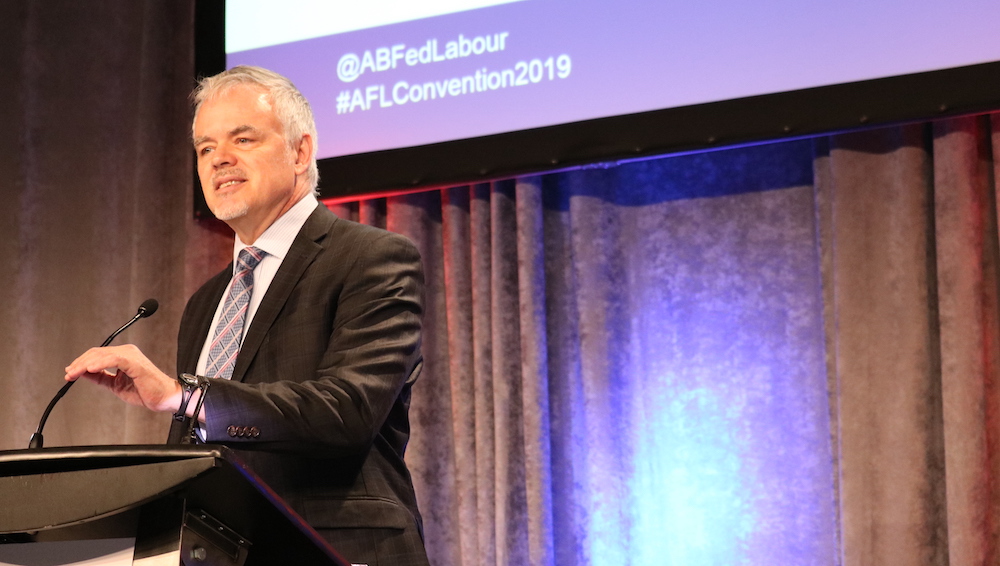11
Canada and Alberta can manage the transition away from fossil fuels, says economist Jim Stanford in new study - Alberta Politics
albertapolitics.caThe decline of Canada’s fossil fuel industry is inevitable, and unlikely to be the disaster Conservatives like Alberta Premier Jason Kenney have been predicting, a study released this morning by the Vancouver-based Centre for Future Work concludes. But we need to recognize reality and get cracking to make the transition a success, says Canadian economist Jim Stanford, the author of the study, Employment Transitions and the Phase-Out of Fossil Fuels. Indeed, wrote the former Canadian Auto Workers economist in the 113-page paper, direct employment in fossil fuel industries in Canada is relatively small, about 170,000 jobs in 2019, or less than 1 per cent of total employment in Canada. “Its role in overall Canadian employment is modest and shrinking.” And while employment in the fossil fuel sector has been steadily declining since 2014, that decline has occurred in the context of strong performance by the Canadian labour market. “Total employment expanded steadily through this period – recording a record-low unemployment rate in 2019,” Dr. Stanford wrote. “For every job that disappeared from fossil fuels between 2014 and 2019, 42 new positions were created in other industries.” About 33,000 fossil fuel jobs disappeared between 2014 and 2019, according to the study, and another 17,500 disappeared last year during the COVID-19 pandemic and the recession that followed. “This pace of absolute and relative erosion is consistent with the complete phase-out of fossil fuel employment over a 20-year timetable,” Dr. Stanford wrote. “This would be consistent with Canada’s commitment to carbon net neutrality by 2050.” He estimated Canada will lose about 8,500 employment positions in the field each year over the next two decades if the phase-out of the fossil fuel industry proceeds as expected. “The Canadian labour market typically produces that many new jobs every 10 days.” “Even if energy prices recover and some new petroleum projects go ahead, there will be virtually no net hiring in fossil fuel industries,” he predicted. Nor are oilpatch jobs consistently the well-paid, high-quality jobs that the fossil fuel industry and Conservative politicians have conditioned us to believe, the report says. “Even absent climate change considerations, the quality and stability of fossil fuel jobs have been badly undermined in recent years by employer cost-cutting, automation, and other pressures,” Dr. Stanford wrote. “Real wages in fossil fuel industries have been falling, union representation has been eroded, and working conditions have deteriorated.” So the conclusions of this study should reassure working people in Alberta and Canada despite the hysteria that is bound to follow the expected decision by U.S. President-elect Joe Biden to pull the plug on the controversial Keystone XL Pipeline to the U.S. Gulf Coast as soon as he is sworn in on Wednesday. This is unlikely, of course. Encouraging Canadians to fear the inevitable transition away from fossil fuels will continue to be a key strategy adopted by Conservative parties, nationally and especially here in Alberta. The chance of Mr. Kenney’s United Conservative Party Government acknowledging the inevitable seems vanishingly small. Still, Dr. Stanford wrote, “trying to ‘stop’ climate policy will protect neither the quantity nor the quality of fossil fuel jobs. Other measures must be taken to protect these workers.” Unsurprisingly, the study shows fossil fuel jobs are distributed unevenly in Canada. “There are 18 communities (including one major city, Calgary) where fossil fuel jobs account for over 5 per cent of total employment. Even in most of those communities, however, fossil fuel industries are not the largest employer, and it is employment trends in other industries that will dominate regional labour market trajectories.” A managed transition away from fossil fuel work – planned, supported, and phased-in over many years – can certainly be accomplished successfully with minimum dislocation, the report says. Indeed, other Canadian sectors are managing similar disruptions wrought by technological change and environmental concerns with considerably less fuss, among them transportation, retailing and communications. “So for the sake of fossil fuel workers, as well as the sake of the planet, the inevitable phase-out of fossil fuels must be announced and confirmed quickly and firmly, and the process of wind-down commenced,” the study says. Dr. Stanford, author of Economics for Everyone, A Short Guide to the Economics of Capitalism, has recently returned to Canada from Australia, where he worked for the Canberra-based Australia Institute. Born in Edmonton, he was educated at the University of Calgary, Cambridge University, and the New School for Social Research in New York City, from which he holds a PhD in economics. The Centre for Future Work is a project of the Australia Institute, working in collaboration with the B.C. office of the Canadian Centre for Policy Alternatives.



Oil money still has too much control in Alberta.
No kidding, and ain’t it great that the problem is funded by the Canadian taxpayers themselves? Whee!